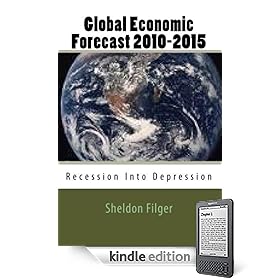Moody’s Cut’s Britain’s Credit Rating; U.K. Loses Coveted AAA Status
The British economy, still struggling from the aftereffects of the 2008 Global Economic Crisis and financial disaster, now has received another boot in its ribcage. Moody’s, one of the three major credit rating agencies, has cut its assessment of the UK’s sovereign debt form AAA to Aa1.
The U.K.’s Chancellor of the Exchequer, George Osborne, put a brave face on Moody’s slap in the face of the political managers of the British economy, by telling the media that the credit agency’s downgrade of the nation’s credit rating was “a stark reminder of the debt problems facing our country. Far from weakening our resolve to deliver our economic recovery plan, this decision redoubles it. We will go on delivering the plan that has cut the deficit by a quarter.”
Typical of other policymakers in the advanced economies gripped by a proverbial sovereign debt and economic crisis, Osborne engages in meaningless platitudes and cliches, hoping to restore market confidence shaken by a credit downgrade through the sophistry of political rhetoric. However, a politician’s words cannot on their own transform structural fiscal and economic realities that are driving the global economic crisis and its parallel sovereign debt crisis.
Cutting the deficit by a small portion through austerity measures that have thrown the British economy back into recession, which means the economic growth that is essential for the future servicing of the U.K.s massive sovereign debt, is looking increasingly more forlorn a hope, appears to be a dysfunctional remedy at best. In addition, Moody’s rating cut may impose upward pressure on gilt yields, leading to even higher future budgetary deficits. And, with a new Governor soon to take over as head of the Bank of England, it is not certain that the embattled and befuddled British politicians can rely on the nation’s central bank to again become the lender of last resort through the money printing engendered through quantitative easing.
Moody’s has done more than just kill the U.K.’s AAA credit rating; it is a reminder of how dire the economic and fiscal situation is in Britain, just as it is in the Eurozone, U.S. and Japan.


WALL STREET KILLS--A CHILLING NOVEL ABOUT WALL STREET GREED GONE MAD
To view the official trailer YouTube video for “Wall Street Kills,” click image below:


